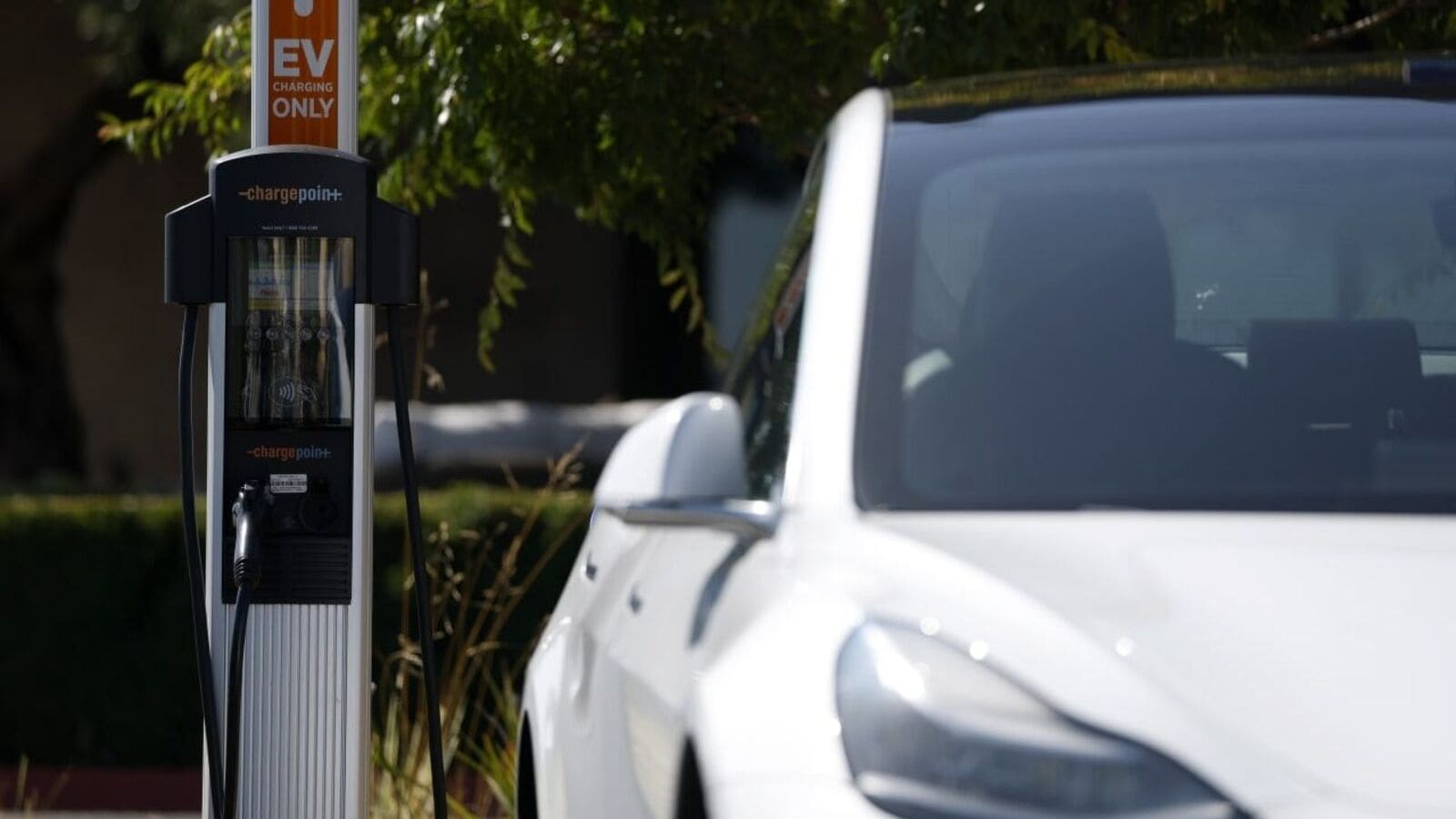Used EV sales topped 100,000 for the first time in the second quarter, according to industry-services business Cox Automotive. It is a rare bright spot for the EV industry, which is contending with lackluster demand and the looming elimination of federal tax credits. Sales for new EVs fell in each of the last three months.
What buyers are finding in the used market is deals. Used EV prices fell nearly 32% in 2024 from 2023, almost 10 times the drop in used gas-powered car prices, according to iSeeCars.com, an automotive research site.
Last year, the average used EV cost around $30,900, in line with the average used gas car, even though a new EV sells for $17,300 more than a comparable gas model on average.
Discounts have drawn in buyers like Christopher Andrzejczak, a systems engineer from Orlando, Fla., who has owned five EVs over the past decade. Last year, he picked up a 2021 Ford Mustang Mach-E with 6,000 miles on it for $36,000—less than half of its sticker price.
That price included an extended warranty and several upgrades like tinted windows that the previous owner had paid for.
Deals on used EVs are especially pronounced because EVs lose value faster than gas-powered cars once they drive off the lot. The depreciation often reflects concerns about battery life and longevity. Replacing a battery out of warranty is costly but uncommon. New technology could quickly make a used EV antiquated. The vehicles also require specialized parts and labor that make them more expensive to repair when something goes wrong.
“I was like, You know what? I’m willing to take a risk on that,” Andrzejczak said. The previous owner “probably took a terrible depreciation hit.”
In the new-car market, higher sticker prices and the fast pace of depreciation can make it hard for many car shoppers to justify going green.
New electric vehicles cost about $800 more a year to own than gas-powered cars when factoring in fuel, maintenance, insurance and fees. But removing the cost of depreciation results in a saving of more than $900 annually versus a gas car, according to an analysis of AAA data. EVs have lower fuel and maintenance costs, but cost more to insure.
In 2024, charging an EV at home worked out to the equivalent of about $1.41 a gallon of gas, according to the Energy Department. That is less than half of what most drivers paid at the pump last year.
EV owners spend roughly half as much on upkeep and repairs compared with gas-car drivers, according to Consumer Reports. Over the life of the car, that adds up to about $4,600 in maintenance costs for an EV compared with $9,200 for a traditional one.
Used cars also don’t depreciate as quickly. In January, Andrzejczak purchased a used 2021 Audi E-Tron Prestige for $27,000, with the intent to get ahead of tariffs and eventually gift it to his teenage son. When his son made it clear he wasn’t interested in March, Andrzejczak sold the car to Carvana for $26,000.
“It’s like I borrowed it for a few months for $1,000,” he said.
Jason Wallace, who owns Electrified Autos, a used EV dealership in Joplin, Mo., says more buyers are realizing they can save money by making the switch to electric. In an economy pinched by years of inflation and high interest rates, he said, “that’s all that matters to them.”
The used-car dealership has been in Wallace’s family since 1975 when his grandfather opened it, but Wallace and his brother made the decision to focus exclusively on selling electric vehicles last year. So far, it has paid off.
“There’s demand for EVs at the right price,” he said. “Not everyone is going to spend $60,000 on a car but they will look harder when it’s $20,000 or less, and we have no problem selling those.”
Another reason for the rush is looming changes in EV policy. A $4,000 federal tax credit for used EVs is set to expire at the end of September as a result of the new tax law passed earlier this month. The $7,500 federal tax credit for new EVs, which made new models more affordable and helped keep prices down in the used market, is also expiring at the same time.
Eli Cook decided to buy an electric vehicle after researching gas prices in the Bay Area. He and his wife, both recent college graduates, plan to move there from Missouri later this year for work. Expecting far higher gas prices in California than Missouri, the couple wanted something affordable and efficient. As newlyweds, they are determined to avoid going into debt.
They could have waited until after the move, but worried they would miss out on the tax credit. Last month, they paid $15,000 cash for a 2020 Tesla Model 3. The window sticker, Cook said, showed it had sold for nearly $40,000 four years earlier.
“It really seems like we’re buying the dip for used EVs right now,” he said.


